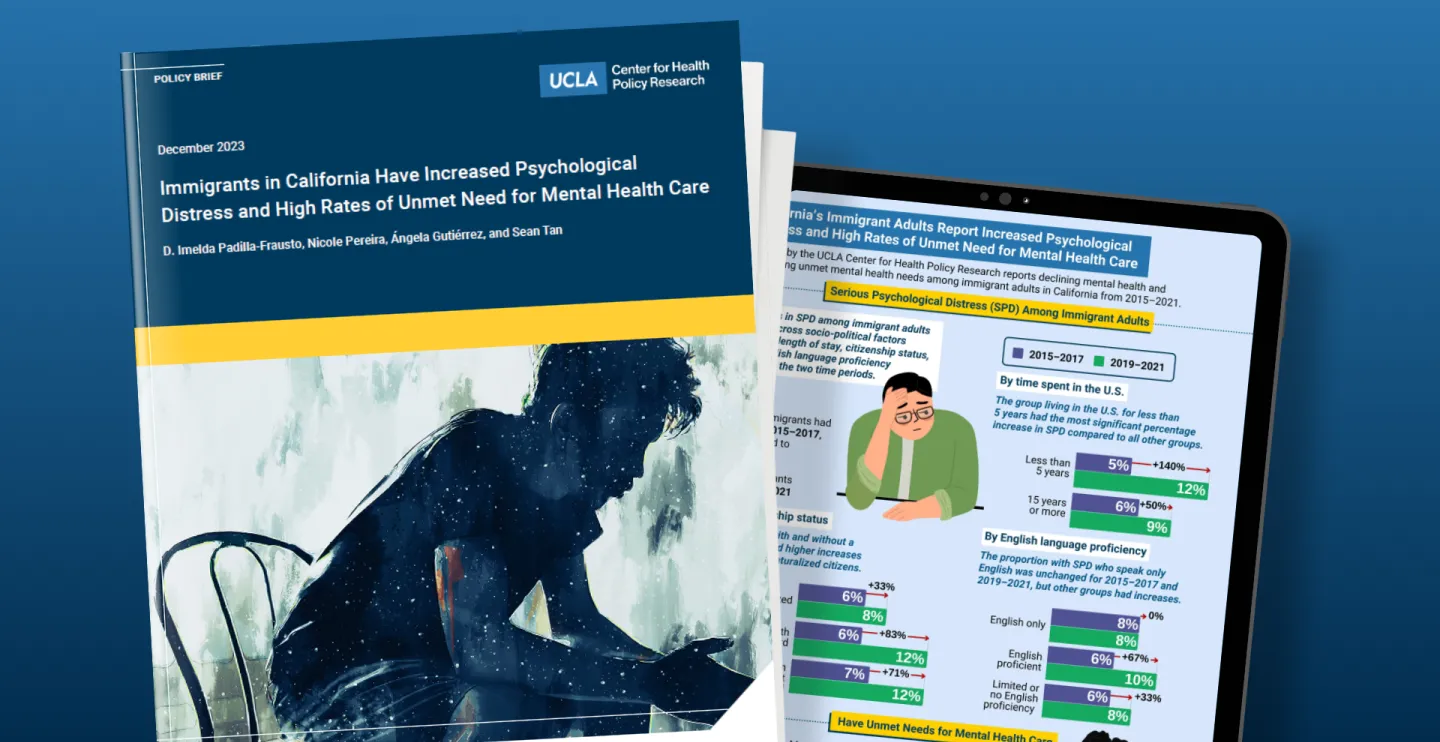Summary
Summary: Anti-immigrant rhetoric and restrictive immigration policies are widely acknowledged to have harmful impacts on the mental health of immigrant populations. However, further study is needed to determine how immigrant populations are differentially affected. In this policy brief, authors present data from the California Health Interview Survey (CHIS) from 2015 to 2021 to show changes in serious psychological distress (SPD) and rates of unmet mental health care needs among immigrant adults in California.
Findings: Authors found that the percentage of immigrant adults with SPD increased by 50% — from 6% to 9% — during these years. However, in examining the data in terms of sociopolitical factors, we also found that the occurrences of SPD and the rates of unmet mental health care needs were unequally distributed. California’s immigrants who had lived in the U.S. less than five years experienced the highest increase in SPD, from 5% to 12% — a 140% increase. Immigrant adults with and without a green card also experienced an increase in SPD (by 83% and 71%, respectively). Adults proficient in English had a 67% increase in SPD. The rate of unmet need for mental health care in this group was 58%, compared to a rate of 77% among those who had lived in the U.S. less than five years.




